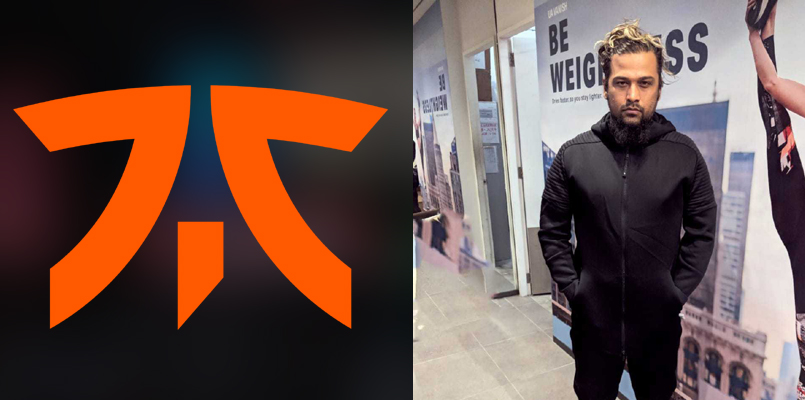Mentioned in this article
Fnatic’s entry into India was an important moment for Indian esports, and along with the attention it received from fans and well-wishers, the move has paved the way for other organizations to now enter the scene. In March 2020, Team SoloMid became the second international organization to enter the Indian PUBG MOBILE space, partnering up with local organization Entity Gaming. But, India is not just about tapping into a big population and it’s definitely not just about eyeballs on a stream or a video.
“Fnatic coming to India has put India on the world map for team investments and has opened the opportunity for other organizations to learn brand building, fan engagement and how to build a sustainable business around esports. This has also made Indian organizations follow certain global standards in daily operations” said Nimish Raut, India lead at Fnatic.
With previous experience in the entertainment, media, and esports industries, it’s hard to find a candidate with more relevant experience than Raut in the country. His belief is that India is going to be a content and partnerships driven market rather than a prize pool and broadcast rights driven. His goal is also to develop Fnatic into a lifestyle brand and build it into India’s most stylish team.
“We are a lifestyle brand period. Our brand is a statement, we play cool, look cool, live cool and behave cool. Everyone in this team is a style icon on their own including me” adds Raut. The theme around the Fnatic brand and team has been style. From clothing and footwear to a stylish boot camp, the way everyone associated with the team has been carrying themselves is a clear indicator of what direction Fnatic wants to go in.
For now, all directions seem to be heading towards mobile esports for India. The rise of mobile gaming seems natural in India given that the market and demographics are set up for a mobile-friendly ecosystem. In January 2020, India became the second-largest smartphone market in the world and with more than 50% of its population below the age of 25.

“India has the numbers in mobile esports, we have cheap data and we don’t want to spend on in-game items, but what we have is also this ability to create processes and find ways to organize a community so quickly on our own. This time around, the community has created the space and now brands need it more than ever” he said, when asked about what separates India from other countries.
But rising popularity in mobile esport titles has come at the cost of existing PC titles, some of which have been completely axed by tournament organizers as they were nowhere close to PUBG MOBILE in terms of participation and viewership. While many have called 2020 the death of PC gaming in India, Raut is bullish about the sector. He feels that with broadcast innovations and a new model, PC gaming culture can be revived. “Not everyone who watches League of Legends plays it. You just need to make sure people know your game enough to follow it as a sport and they will watch. The short answer is that it can be done and should be done.”
While the arrival of Fnatic and TSM has made a lot of noise, the responsibility will now be upon these organizations to set forth the right course for India. From intelligent local hires to implementation of a strategy, the first year will be very crucial in terms of setting up a long-lasting brand. As for Fnatic, its 2020 goals are quite straightforward.

“We will build a loyal and massive fan base, our players will be the first to sign lifestyle deals and long term contracts, we will bring in a set of sponsors that have never invested in esports in India and finally, we will make some kick-ass clothing line and content” concludes Raut.
Fnatic India will be playing in the PUBG MOBILE Pro League South Asia, which kicks off on March 19 and has a prize pool of $200K USD. While the team is a favorite because of the star power of Fnatic, recent performances haven’t been the kindest to the squad. Success within the region will provide the organization with a chance to represent India at an international level. The team is currently in preparation for what is going to be a long and hard three weeks of competition from its temporary bootcamp in Bangalore, India.
Shounak Sengupta is a staff writer for AFK Gaming.


